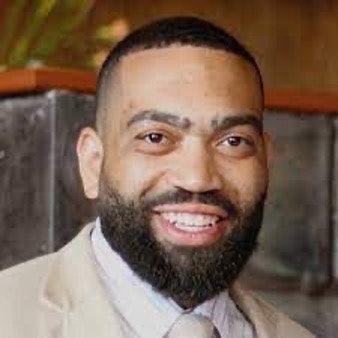African American males and collegiate sports continue to be a topic of debate in higher education. The arguments range from how athletics hamper the academic performance of African American athletes to how collegiate sports open many life-changing opportunities for the athletes.
Former collegiate athlete Yusuf Sabree was a standout student-athlete who currently holds the position of district dean of student services at Wayne County (Mich.) Community College. Under the guidance of Dr. Christine Johnson McPhail, president of Saint Augustine’s University in North Carolina, Sabree recently conducted a study to glean perspectives of former African American male community college athletes’ experiences. These student-athletes were also interviewed about the support services that they needed. Dr. Christine Johnson McPhail
Dr. Christine Johnson McPhail
Sabree decided to target Michigan community college former athletes as participants in his study. Michigan community colleges are open-admission institutions that offer affordable education and provide a vehicle for African American males who might not otherwise pursue a college education. Sabree’s research revealed that community colleges appeared to be failing African American males, in general, and African American male student-athletes, in particular. Sabree discovered that huge educational gaps existed in transfer rates for this population at community colleges across the nation (Harper, 2009). His research also revealed that although athletic and academic experiences may vary for African American males entering community college, African American males often are academically unprepared, drop out at high rates, and face multiple types of systemic racism before they reach the college campus.
Varied academic experiences were among the findings Sabree identified through interviews with student-athletes. Participants in the study reported challenges while attending the community college that varied from a lack of previous support in high school to having no motivation to attend college classes.
From the interviews, Sabree identified guiding principles for future student-athletes’ community college success, including:
• Practice discipline and demonstrate a great deal of maturity.
• Engage in relationship building.
• Take classes that matter and that will transfer to a four-year institution.
• Take advantage of the smaller class sizes and controlled environments.
• Practice time management.
• Seek out support services.
• Recognize opportunity.
Life events prior to becoming athletes varied among participants. Some African American student-athletes continued to face the same challenges they faced before attending community college – challenges such as constantly avoiding troubled areas and bad influences. Some indicated they felt educationally unequipped and lacked the tools to succeed at the college level.
External and internal support systems can be significant influences. For example, family influence is important for a young African American male in school. A few African American student-athletes mentioned a father, mother, or someone in their immediate family who pushed them and gave them the support needed to enroll in college. For some participants, it was the reason they were introduced to community college. They referred to teammates as their brothers, as family. Teammates were described as helpful, as motivational, and as lifesavers to their fellow teammates, helping them to stay eligible and focused on their goals. Some African American student-athletes said professors, too, cared a lot and helped them with their classes. Others mentioned that faculty made it hard for them or seemed only interested in earning a paycheck. The head coach was clearly identified as having the most influence on a participant’s academic journey. Head coaches determined each participant’s athletic future and, as such, the actions and words of a head coach meant the most to participants. Dr. Yusuf Sabree
Dr. Yusuf Sabree
Finally, African American student-athletes expressed a clear link between participation in collegiate sports and academic success. They stressed that sports taught them composure, stick-to-itiveness in the face of adversity, and the spirit of teamwork. They expressed they became better students because they wished to remain eligible to participate in sports. There was a strong sense of motivation among African American student-athletes to reach their ultimate goal – an athletic scholarship to a four-year institution.
It is essential to understand that the overall academic achievement of African American male student-athletes should not be the individual student-athlete’s responsibility alone. The responsibility must also be assumed by the institution and the community to promote, support, encourage, and create academic success that is sustainable and consistent for African American male student-athletes.
Dr. Yusuf Sabree serves as district dean of student services at Wayne County Community College District, Detroit, MI.
Dr. Christine Johnson McPhail serves as president, Saint Augustine’s University, Raleigh, NC.
The Roueche Center Forum is co-edited by Drs. John E. Roueche and Margaretta B. Mathis of the John E. Roueche Center for Community College Leadership, Department of Educational Leadership, College of Education, Kansas State University.















